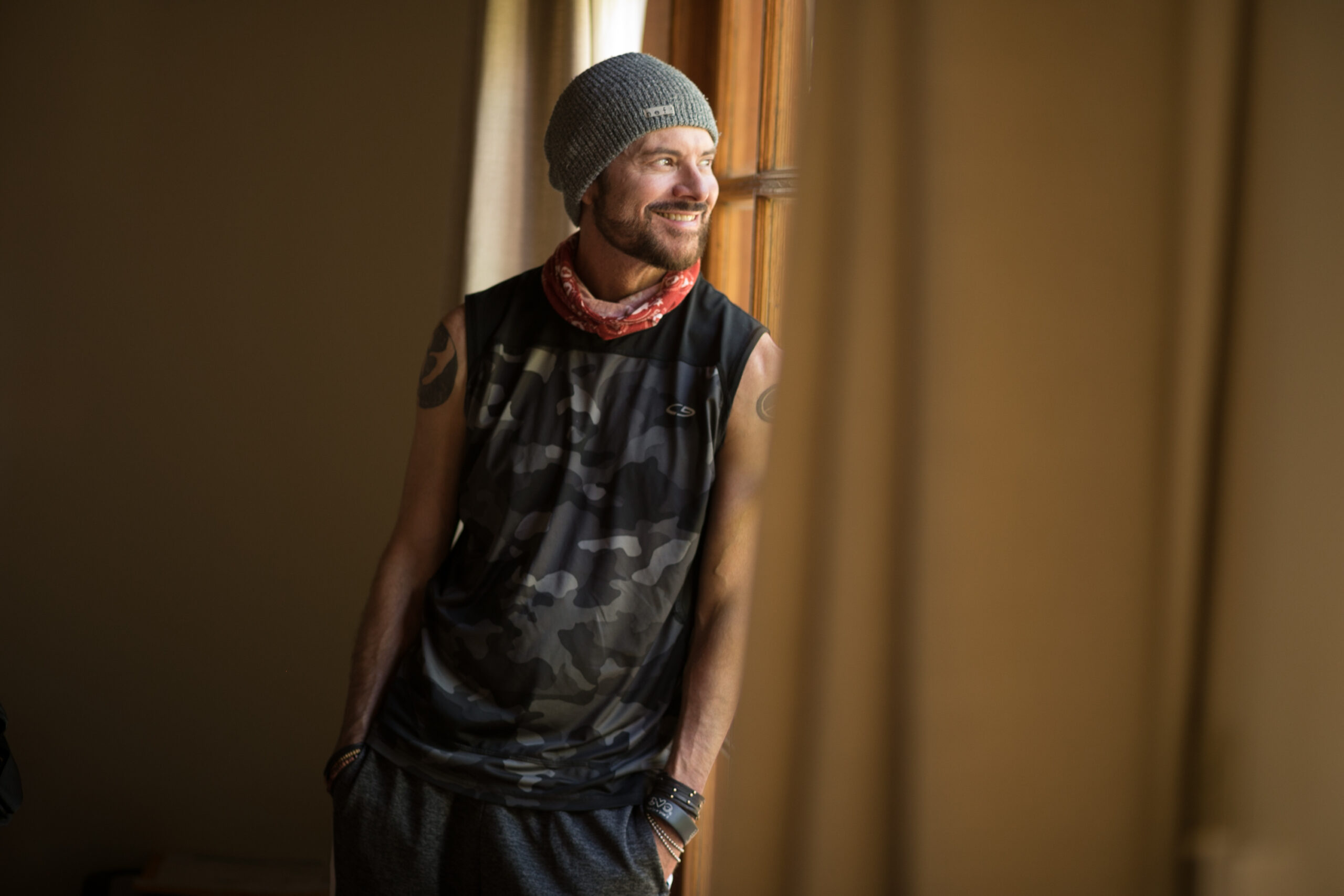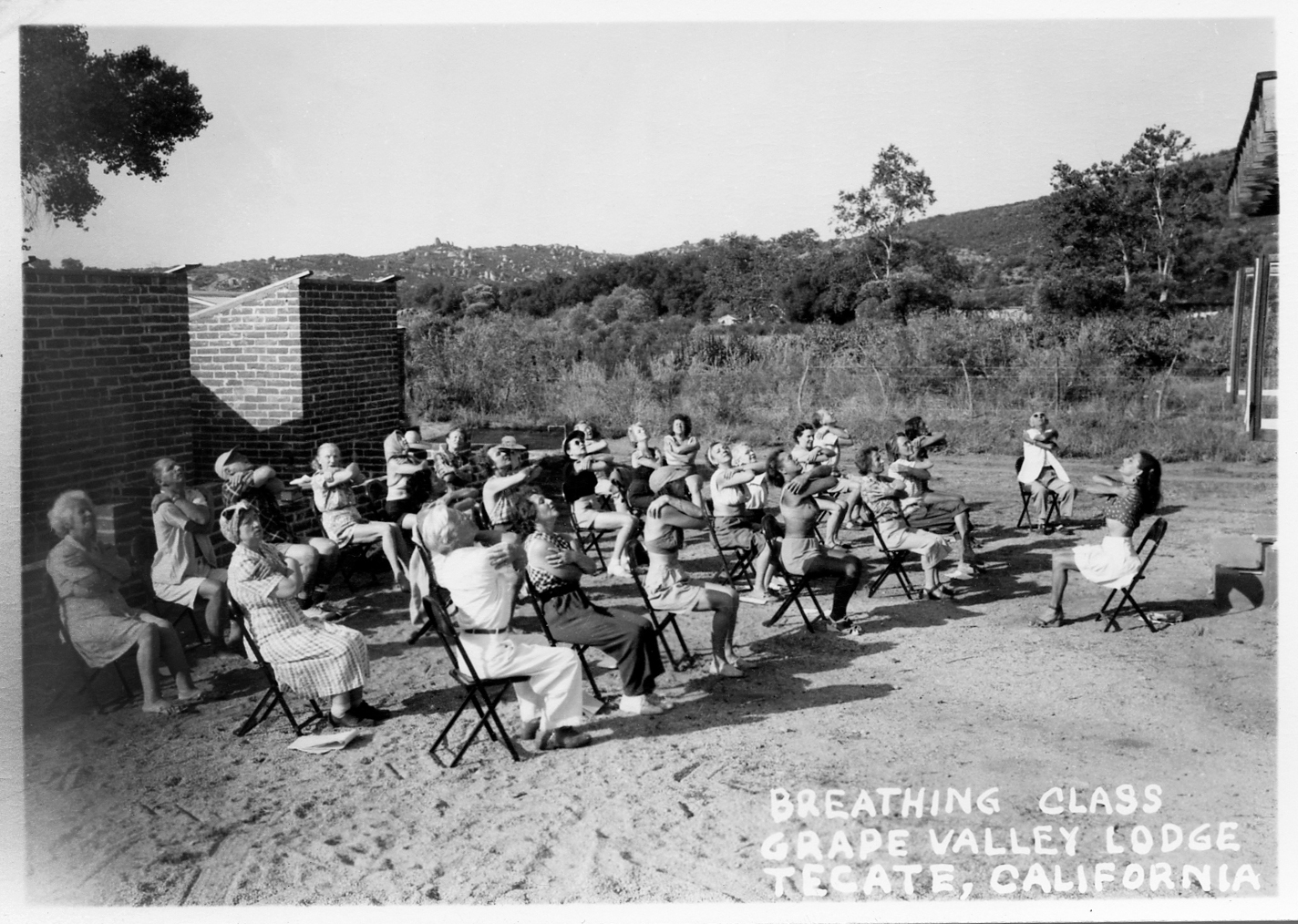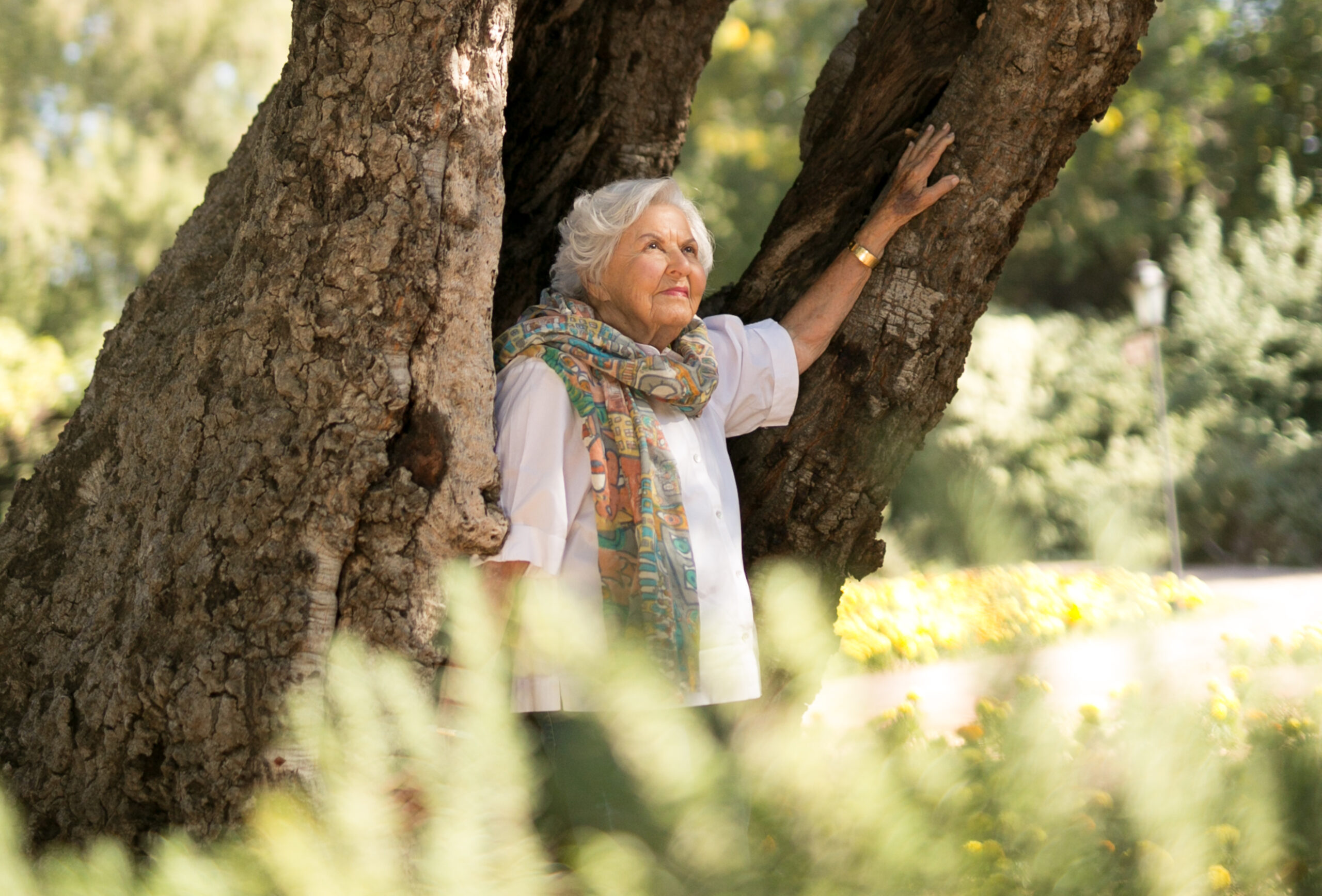Origins of the Ranch, Part XXII

Stories of wildcats, lazy burros, slow-moving trains and more…Deborah recalls the early days of the Ranch.
Recently co-founder Deborah Szekely was asked to give a speech at Innovadora, a large bi-national conference held every two years in Tijuana, Mexico. As a successful businesswoman/entrepreneur in Mexico for 75 years, she was asked to recall some of the early days of doing business in Baja California. We’ll share an excerpt:
Those were the days! … when neighbors were really neighbors and the border wasn’t important.
I have several stories from those days in the ’40s and early ’50s that illustrate my feelings toward the border region:
First …
I had a donkey…a big white stubborn donkey named Maximilian. A friend and I purchased him on the spot in Tecate when we saw him so overloaded with wood that we worried he would collapse and die. We also thought he might be useful around the Ranch.
He was not.
He would not be ridden and he roamed the valley and mountainsides as though the border didn’t exist.
Every few weeks someone would call from the States and say, “We have your donkey! Come and get him!” We did. To get him home, we drove beside him very slowly, holding the lead outside the car window, so he could follow. That was the way the border worked in those days: everyone, including officials in the customs and immigration offices, knew each other. Maximilian, by the way, became quite famous. He once got as far as Barrett many miles away. Newspaper stories were written about him!
Second …
One stormy winter evening, when the only light came from a kerosene lantern, Edmond opened the door and saw what he thought was our pussy cat waiting to go inside. He bent to pick him up, but it turned out to be a wild bobcat and it bit him several times.
The decision was universal: the wildcat was probably rabid because they never come close to people’s houses. We ran about looking for the antidote, and the only one available anywhere remotely nearby was at Camp Lockett, a military base in Campo 16 miles from the border.
But in those days Edmond had no valid passport or papers, and as a Jew he certainly could not return to Romania—it would have been a death sentence in W.W. II—and he could not return to the U.S., for his visa had expired and he’d been warned that he would be arrested and deported. And so we became essentially undocumented aliens taking refuge in Mexico—a country that kindly welcomed us.
We were frantic. I probably cried when I explained the situation to the immigration authorities in Tecate, California. Their response was, “We’d be happy to help.” So, about once a week for five weeks we climbed in a car, my husband and the chief of U.S. Immigration from Tecate sat in the back seat, and we drove to Camp Lockett for the shots. There wasn’t anything noteworthy about it. We just did it. We were all neighbors and friends.
Third …
During the war gasoline rationing was in full effect. At that time, I did not know how to drive, so every week I would take the train or catch a ride to San Diego to buy the things we needed that weren’t available in Tecate or Tijuana. I then loaded everything on the train from San Diego to Tecate—boxes and baskets full of things. As we approached Rancho La Puerta, the conductor tooted the horn so the Ranch staff knew I was on the train. The train slowed to a crawl so I could jump off. The conductors handed the packages down to me while I ran alongside—for all the while the train kept moving!
And fourth, and perhaps most importantly, the story of how my husband found a country …
Here he was, a man without a passport and very European looking. So he rarely left the Ranch, for if we were stopped on the highway he would always have to say he left his passport at home, talk his way through the difficulty, and we’d drive on. It was always uncomfortable.
One day I left San Diego very early to be at the Ranch, and I drove through Tijuana around 7am. As I passed Rancho Florida (President Aleman’s ranch retreat), I saw soldiers lined up along the road every 50 feet or so. I knew the President was there. (Remember—it was a time of no cell phones…no regular phones…but the gossip lines were always open.) We all knew whenever the president was there.
And I thought, “Wow, here he is and yet he’s not busy and no one knows he’s here!” There were no cars lining the driveway or the highway. Arriving at Rancho La Puerta, I told my husband to get dressed—quick quick—for we have to go and talk to President Aleman about helping you get papers. The Professor grumbled about putting on his suit and tie… but we soon left the Ranch and drove right up to the President’s house. A man came out. We said we want to see the President and he took us in.
He was having his coffee. We told him our story, and of our dreams for Rancho La Puerta. He listened carefully. He sent for a young man who was in the kitchen and said, “Todo informacion…” We gave the president one of the Professor’s books, La Philosophia de Antigua de Mexico, both volumes.
And we left.
My husband grumbled all the way home: “What a waste of time!”
Within two weeks we had a call from the mayor’s office in Tecate asking my husband to come and be fingerprinted. Soon after, we received his papers of citizenship. I tell this story always with great pride in Mexico. I don’t know another country where this could have happened.
So … you can see that our world in those days was a time of neighbors and friends … and the border was really only a line on a map. Everyone respected that we were trying to make something happen at our little camp in Tecate, and that our efforts were good for local employment. Can you imagine any of this happening today?
Sadly no—thanks to regulations and growing mountains of paperwork.
But I DO know that the abiding friendship I have known between the people of Mexico and the United States will never change. It is unfortunate that the media seldom looks at our mutual respect and understanding as newsworthy.


